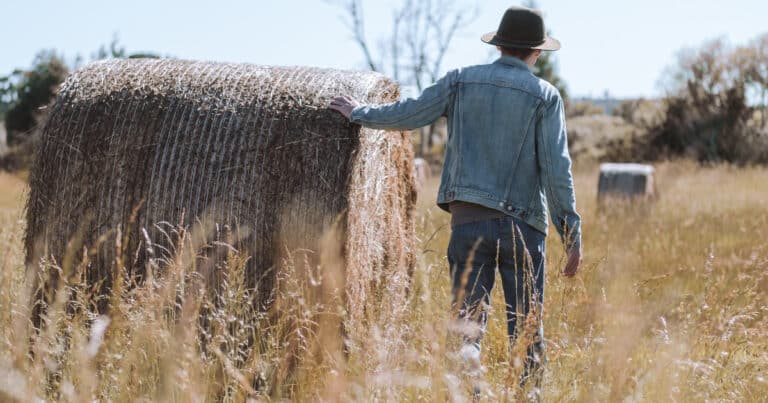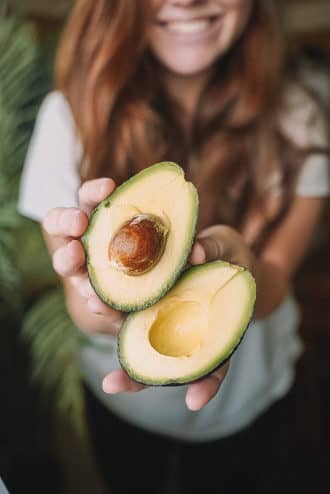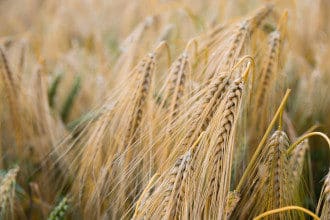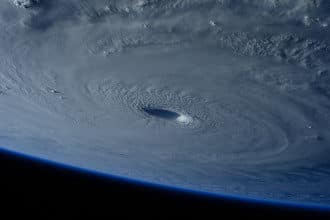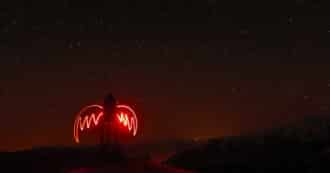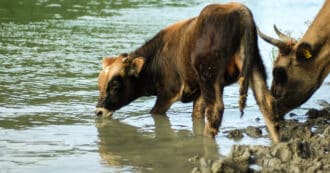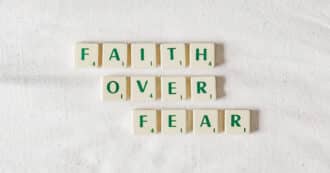A Summary of Genesis 47
By Aryeh Ronay – In Genesis 47 we read about how the children of Israel, i.e. the brothers of Joseph, have come from the land of Canaan and have settled in Goshen.
Joseph brings his brothers before Pharaoh and they tell him “Thy servants are shepherds, both we, and also our fathers… For to sojourn in the land are we come; for thy servants have no pasture for their flocks; for the famine is sore in the land of Canaan: now therefore, we pray thee, please let your servants dwell in the land of Goshen” (Genesis 47:3-4, based on the King James Version of the Bible).
Goshen Granted To Joseph’s Family
Pharaoh gives a favorable answer to their request. Pharaoh responds and says to Joseph, “Your father and your brothers are come unto thee: The land of Egypt is before thee; in the best of the land make thy father and brethren to dwell; in the land of Goshen let them dwell: and if thou knowest any men of activity among them, then make them rulers over my cattle” (ibid 47:5-6).
Jacob Blessed Pharaoh
Pharaoh also speaks with Joseph’s father Jacob/Israel. Pharaoh asks Jacob how old he is, and Jacob responds “The days of the years of my pilgrimage are an hundred and thirty years: few and evil have the days of the years of my life been, and have not attained unto the days of the years of the life of my fathers in the days of their pilgrimage” (ibid 47:9). Their interaction concludes: “And Jacob blessed Pharaoh, and went out from before Pharaoh.” (ibid 47:10).
After these interactions, Joseph settles his family in the land of Goshen as Pharaoh commanded. Joseph gives his family bread and they live well under his care.
Meanwhile, the rest of Egypt is starving, and they must come to Joseph to get food. Joseph offers them food in exchange for their livestock, and step by step, the Egyptians give up everything they have. Joseph brings all their money into Pharaoh’s house, and even gains control over their land. The only land Joseph doesn’t take is the land of the priests, because the priests receive their land and food from Pharaoh.
The Finale of Genesis 47
At the end of the chapter, we read about Joseph’s arrangements with the Egyptians to keep them alive, while they work as serfs to Pharaoh. We also read about how Jacob calls his son Joseph, and says that he wants to be buried in Canaan and not in Egypt.
In this chapter we read about major developments in Egyptian society as they transition from freedom to serfdom, and major transitions in Joseph’s family, as he settles them in Goshen, and their father prepares to die.
Let’s look at some commentaries in the best-selling book “Eco Bible” to gain a deeper understanding.
Eco Bible
Replacing Animals with Plants
Genesis 47:17 – so They Brought Their Livestock to Joseph, and Joseph Gave Them Bread in Exchange for the Horses, for the Stocks of Sheep and Cattle, and the Donkeys; Thus He Provided Them with Bread That Year in Exchange for All Their Livestock.
Netziv, in his commentary Ha’amek Davar, asks why the animals are listed in this way, and he answers that they are listed in order of importance to the state and economy. First come the horses required for Pharaoh’s army and national defense; next the sheep that provide wool, milk, and meat; then the cows that provide milk and meat; and finally, the donkeys suitable only for transportation.
In a time of crisis, Egyptians gave up their animals for a plant-derived food – bread – demonstrating that a plant-based diet consumes far fewer resources of land, nutrients, and water. Eating less meat has also been associated with better health. In the words of the Harvard Women’s Health Watch, “a Mediterranean eating pattern – known to be associated with longer life and reduced risk of several chronic illnesses – features an emphasis on plant foods with a sparing use of meat.”
In our modern society we are far less reliant on animals for things like agriculture, clothing, and transportation than in Biblical times. In warfare, tanks and airplanes have replaced horses. We have largely replaced sheep’s wool with other fibers. We use trucks instead of donkeys to transport goods. And many people replace animal protein with soy or other food sources of plant-based protein. We have the potential to consume far fewer resources in our lives than previous generations could, yet we consume far more. Our choice to consume more and more meat and dairy products, despite the environmental cost, is one of our generation’s key challenges.
Joseph’s Foresight and Restraint by David Goldblatt
Genesis 47:18 – and When That Year Was Ended, They Came to Him the Next Year and Said to Him, “We Cannot Hide from My Lord That, with All the Money and Animal Stocks Consigned to My Lord, Nothing Is Left at My Lord’s Disposal Save Our Persons and Our Farmland.”
Joseph embodies foresight, self-discipline, and concern for the larger community. He used his prophetic insight to instruct Egypt to make provisions, during seven years of plenty, for seven years of famine that would follow. Anticipating an impending human-ecological disaster, he had Egyptians gather grain in the time of plenty as insurance against hard times to come. Egypt benefited because Joseph forced the Egyptians to show restraint ahead of a crisis – to consume less in the short term, in return for some non-material gain, and survival in leaner times to come.
Pharaoh (whose name implies Paru’ah, undisciplined) is the quintessential self-indulger. By contrast, Joseph exemplifies self-discipline. (Jacob likens him to an ox, Shor, which also means to see.) Self-restraint, discipline, and making pleasure secondary to the pursuit of goodness create a path to the World to Come. In this case, Joseph shows how societal restraint and discipline are also the means to secure one’s future survival in this world.
In the words of Rabbi Avraham Greenbaum, “Joseph used the Seven Years of Plenty to teach the Egyptians to put limits on immediate consumption and gratification in order to save for the future.” This is a discipline modern societies sorely need to learn. If we do not plan for the future, we will be unprepared when it arrives.
During the second year of the famine, all the Egyptians’ grain rotted and after selling their livestock for food, they sold their land to the state (Genesis 47:13-19). Rabbi Daniel Kohn says that Joseph ultimately brought the Egyptians into a caring relationship with the earth (“and the land will not become desolate” (Gen. 47:19)). Even though the land no longer belonged to them, they followed Joseph’s insistence that they symbolically commit themselves to a path of self-restraint.
Today we lack two distinct advantages Joseph had in implementing his plan to safeguard Egypt. His knowledge of the future was perfect for God revealed to Joseph what would transpire, in the form of Pharaoh’s dreams. And Joseph’s control was absolute over managing the Egyptian agrarian system and achieving his plan, as Pharaoh’s appointed leader.
We do not have perfect knowledge of our impact on the environment, nor does any single leader have absolute power to change that impact. Some level of uncertainty is inherent in most current environmental problems.
Our challenge is to deal with this uncertainty responsibly, incorporating the Precautionary Principle, which demands “a willingness to take action in advance of [complete] scientific proof of evidence of the need for the proposed action on the grounds that further delay may prove ultimately most costly to society and nature, and, in the longer term, selfish and unfair to future generations.” We may not have the luxury of Joseph’s God-given absolute knowledge and power, but we do have the past to learn from, and dreams for our future to drive us to action.
Let Us Not Perish
Genesis 47:19 – Let Us Not Perish Before Your Eyes, Both We and Our Land. Take Us and Our Land in Exchange for Bread, and We with Our Land Will Be Serfs to Pharaoh; Provide the Seed, That We May Live and Not Die, and That the Land May Not Become Desolate.
The verse shows the desperation people experience when environmental problems reach a crisis stage. Nature, through the famine, overwhelms the Egyptians.
In today’s world, environmental problems are reaching crisis stage for millions of people. In September 2019, Hurricane Dorian decimated the Bahamas. A New York Times article quotes Cindy Russell, a resident of Marsh Harbour in the Bahamas, whose home was destroyed: “It’s like we just need to be rescued and put on another island to start over again,” she said. “Complete devastation.” The ravages of such a storm – and the increasing frequency and intensity of storm activity – are the canary in the coal mine, a sign of imminent danger if we don’t curb climate change.
* Featured image source

